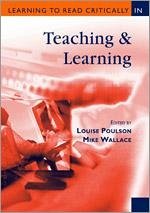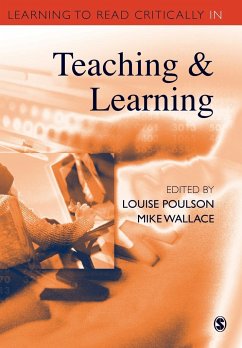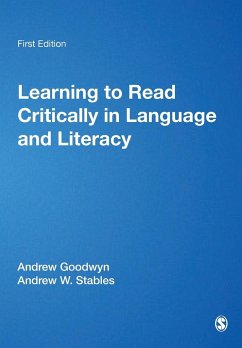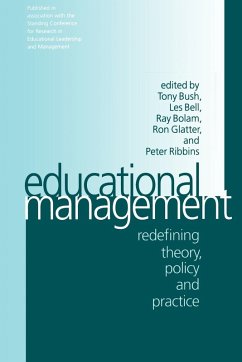Nicht lieferbar

Learning to Read Critically in Teaching and Learning
`Learning to Read Critically in Teaching and Learning offers a contribution to the debates on curriculum and pedagogy. The title itself is especially noteworthy since it indicates quite clearly that the reader is being encouraged both to learn and to develop their critical faculties on the topic of teaching and learning. This is a clever multi-layering of meaning that reflects the aims of the book extremely well' - School Leadership & Management This book combines a teaching text with exemplary reports of research and a literature review by international scholars. Part One offers ideas on: how...
`Learning to Read Critically in Teaching and Learning offers a contribution to the debates on curriculum and pedagogy. The title itself is especially noteworthy since it indicates quite clearly that the reader is being encouraged both to learn and to develop their critical faculties on the topic of teaching and learning. This is a clever multi-layering of meaning that reflects the aims of the book extremely well' - School Leadership & Management This book combines a teaching text with exemplary reports of research and a literature review by international scholars. Part One offers ideas on: how to become a critical reader and self-critical writer of literature; how to apply these insights in planning a written assignment, dissertation or thesis. The student is provided with a framework for the critical analysis of any text and shown how to incorporate it in a literature review. Part Two presents accounts of leading-edge research from well-known contributors, offering insights into key issues in the field of teaching and learning. These accounts reflect diverse theoretical approaches, national contexts, topics, research designs, methods of data collection and analysis, and styles of reporting. The student is invited to practice literature review skills by applying the critical analysis questions to any research report. Part Three is a critical literature review of a substantive issue in teaching and learning. It shows how a high-quality literature review may be constructed and addresses key issues in the field. This book is essential for students on research-based masters and doctorate courses in teaching and learning; and for students undertaking research training in the humanities and social sciences. This series, edited by Mike Wallace, supports research-based teaching on masters and taught doctorate courses in the humanities and social sciences fields of enquiry. Each book is a 'three in one' text designed to assist advanced course tutors and dissertation supervisors with key research-based teaching tasks and aims to: . develop students' critical understanding of research literature . increase students' appreciation of what can be achieved in small-scale investigations similar to those which they undertake for their dissertation . present students with major findings, generalisations and concepts connected to their particular field.








